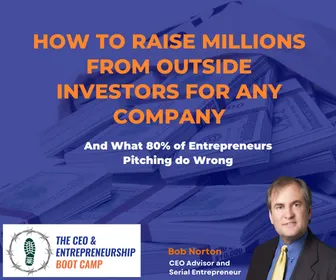“A company is stronger if it is bound by love rather than by fear.” – Herb Kelleher
Simply put, generally, no, but there are various scenarios and circumstances. So, this is really not a yes-or-no question and requires more information to answer.
Legally, any officer of the company (a legal status according to the Secretary of State filings in the state in which your company is incorporated) has the right to commit their company legally to any contract and hence to hire someone. This status comes with a large “fiduciary responsibility” to act in the best interest of the company and its stockholders. It also means you have liability in certain circumstances. You have a responsibility to all shareholders and cannot make any decisions for personal reasons, only in the best interest of the company.
When on a “Board of Directors,” there is a very high standard for that in law called “Utmost good faith.”. And you can and should be sued and removed for any violation of that responsibility. But that’s another article for another day.
Of course, if any officer is also violating clear company policies, that may not stand and should be surfaced to discuss at a higher level. Or if that officer has a superior, who is presumably also an officer, they will have the right to override that decision. Of course, the President/CEO always has the ultimate authority to override virtually any decision, too. Because every officer reports to the president or CEO. So, few HR people would have this authority, at least in good companies. However, they might filter the people you get and impose their own decision-making that way too.
“The function of leadership is to produce more leaders, not more followers.” – Ralph Nader
The reality is this should never really happen in a good culture. I believe any manager should have full discretion in hiring decisions. If there is an HR Department, they should facilitate that process but have little legal authority or decision-making on who gets an offer. However, companies can set any policies, which their managers must abide by too. So, there is no clear answer without a full review of this policy manual and all the facts. If this is happening, it is a symptom of other problems and discord within the culture that should be resolved.
Professionals deal with these disputes internally, quietly, and privately under high levels of confidentiality to not upset others and also to show the alignment of the management team. Generally, disputes like this should never go public, even internally in the company. Any manager doing so is acting unprofessionally and does not understand their responsibilities very well. A good manager would honor the policies or seek a waiver/exception from someone with superior authority over both HR and them. Not doing that is a symptom of other issues in the culture and management team. It means there are unclear lines of authority, and that root cause should be addressed. Clear lines of authority are critical in any company.
Good management teams act collaboratively and should rarely, and only behind closed doors, air disputes. This requires understanding of the bigger picture, maturity, self-control, and a team spirit. If you ask this question, you are still on a learning curve as a manager and not ready to found your own company yet. You need to study corporate governance and the arts of management and leadership more. And I say “art” because it is a not simple skill you can learn by reading books, it required experiential learning.
“The leader’s job is to create an environment in which great ideas can happen.” – Simon Sinek
I was a member of The National Associate of Corporate Directors (NACD) back in the 1990s when I first became a CEO. They offer some good courses on this. It is critical to understand your responsibilities as a manager, Officer, and a CEO. Each grows in both power and liability.
Although this may vary by industry, I am a believer that hiring decisions should be pushed down. Human Resources is there to facilitate the process of hiring (and firing) decisions of managers, not the other way around. Even an officer in HR should simply coach and deal with specific hiring tasks and never have the ultimate hiring decision. This would be pushing employees on managers and is a formula for disaster.
Learn more about our Growth and Scaling (GSP) Certification program for Managers, click here












